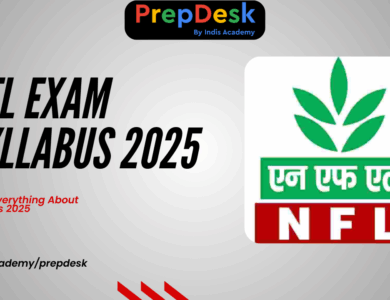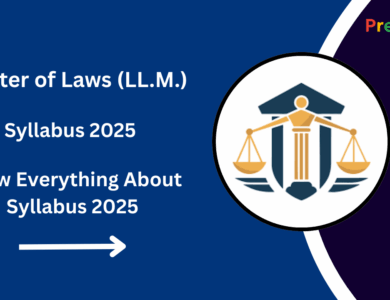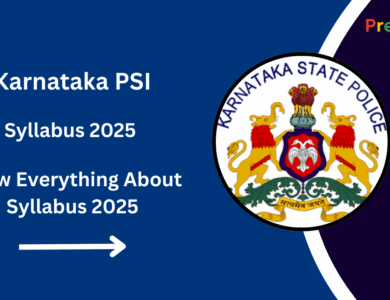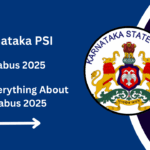UP Lekhpal Syllabus 2025 PDF – Exam Pattern, Subject-wise Topics
Download the complete UP Lekhpal Syllabus 2025 PDF with detailed exam pattern. Covers General Hindi, Maths, GK, Rural Development & Society. 100 MCQs, 120 mins, 0.25 negative marking. Start your preparation now!
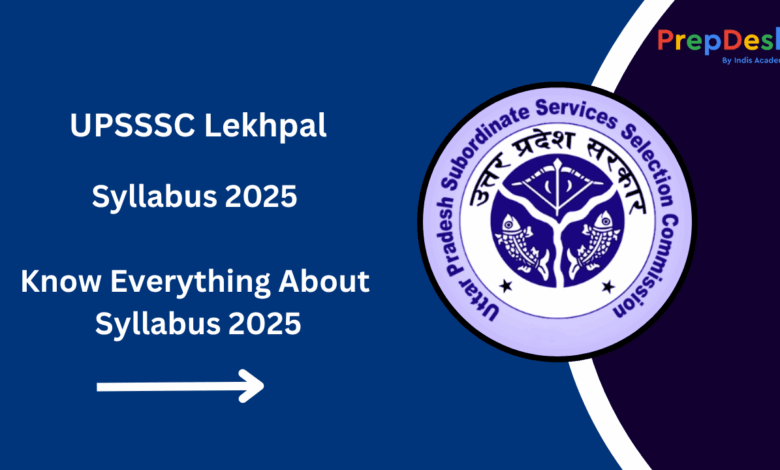
The UP Lekhpal exam is conducted by the Uttar Pradesh Subordinate Services Selection Commission (UPSSSC) to recruit candidates for the post of Lekhpal (Revenue Accountant). The Lekhpal plays a crucial role in rural land revenue administration, handling tasks like maintaining land records, assisting in surveys, and implementing welfare schemes at the village level.
In this guide, you’ll get a complete syllabus breakdown, including topic-wise detailed explanations (minimum 1000 words per subject), marking scheme, preparation strategy, recommended books, PDF download, and more — crafted for UPSC-level precision and optimized for 2025 aspirants.
Exam Overview – UPSSSC Lekhpal 2025
| Particulars | Details |
|---|---|
| Exam Name | UPSSSC Lekhpal (Revenue) Exam 2025 |
| Conducting Body | Uttar Pradesh Subordinate Services Selection Commission |
| Mode of Exam | Offline (OMR-based) |
| Duration | 2 Hours (120 Minutes) |
| Number of Questions | 100 |
| Type of Questions | Objective (MCQs) |
| Total Marks | 100 |
| Negative Marking | Yes (0.25 marks per wrong answer) |
| Sections | 4 – General Hindi, Mathematics, General Knowledge, Rural Development & Society |
Lekhpal Exam Syllabus – Subject-Wise Detailed Breakdown
The Lekhpal exam evaluates candidates on their proficiency across General Hindi, Mathematics, General Knowledge, and Rural Development & Society. Below is a complete topic-wise breakdown with detailed explanations, formatted for WordPress.
General Hindi – Detailed Syllabus
| Topic | Detailed Description |
|---|---|
| Grammar: Structure & Syntax | Covers sentence formation, sentence types (simple, compound, complex), active/passive voice, speech transformation, noun-verb agreement, and word order. |
| Vocabulary Building | Includes use of synonyms, antonyms, idioms, phrases, one-word substitutions, and official terminology used in land revenue records and notices. |
| Comprehension Passages | Reading comprehension with analytical and interpretative questions based on government notifications and reports. |
| Writing Formats | Practice of official letters, applications, notices, reports, and formal documentation styles used in government administration. |
| Official Hindi for Documentation | Training in use of correct terminology and structured expressions used in official and legal land-related documentation. |
| Syntax in Land Records | Focus on passive voice and legal language structures commonly found in Khatauni, Jamabandi, and other land documents. |
Mathematics – Detailed Syllabus
| Topic | Detailed Description |
|---|---|
| Arithmetic Operations | Basic and advanced operations (addition, subtraction, multiplication, division), percentage, average, profit & loss, simple and compound interest. |
| Land Measurement & Mensuration | Calculation of area and perimeter of regular/irregular plots using traditional and metric units (Bigha, Hectare, Acre, Square Meter). |
| Geometry | Shapes, angles, theorems, and their applications in field demarcation and plot boundary verification. |
| Mathematical Reasoning | Number patterns, sequences, logic-based problems, syllogism, and puzzle-based reasoning to support analytical decision-making. |
| Data Interpretation | Tables, bar graphs, pie charts, and line graphs used for analyzing crop patterns, land usage, or census-related data. |
| Accuracy & Computation Techniques | Shortcuts, error checking, estimation, and simplification methods for fast and reliable land measurement calculations. |
General Knowledge – Detailed Syllabus
| Topic | Detailed Description |
|---|---|
| Indian Freedom Movement | Major movements from 1857 to 1947, contribution of leaders, social impacts, with a special focus on events in Uttar Pradesh. |
| Indian Constitution & Governance | Structure of Indian Constitution, Rights & Duties, federal system, roles of Central & State Government including administration hierarchy. |
| History & Geography of Uttar Pradesh | Important historical events, landmarks, rivers, climate, districts, demographic patterns, and soil types relevant for agriculture. |
| Current Affairs & Schemes | Recent national and state schemes like PM-Kisan, PM Awas, One District One Product (ODOP), and updates relevant to land and farmers. |
| Scientific Principles & Environment | Basic physics, biology, environmental awareness, sustainable development, and climate-related impacts on farming and irrigation. |
| UP Administrative Structure | District-to-Village governance, roles of SDM, Tehsildar, Gram Panchayat, and their responsibilities in land and revenue management. |
Rural Development & Society – Detailed Syllabus
| Topic | Detailed Description |
|---|---|
| Panchayati Raj Institutions | Three-tier governance system – Gram Panchayat, Block Samiti, Zila Parishad, their powers and responsibilities in rural land disputes and welfare programs. |
| Revenue System & Land Records | Concepts like Jamabandi, Khatauni, Girdawari, Mutation; use of Bhulekh and BhuNaksha portals; process of land registration and record maintenance. |
| Rural Sociology | Study of caste, social stratification, land ownership patterns, rural livelihoods, and challenges related to economic and social justice in rural society. |
| Agriculture & Rural Development Schemes | Details of schemes like MNREGA, NRLM, PMAY, Kisan Samman Nidhi, and their impact on rural employment, housing, sanitation, and farming support. |
| E-Governance in Rural Services | Digital transformation of services like land record access, Aadhaar seeding, grievance redressal portals, mobile apps for field surveys and revenue collection. |
| Empowerment & Capacity Building | Promotion of SHGs, women’s empowerment, digital literacy, skill development programs to improve rural livelihoods and village self-governance. |
Summary – Lekhpal Syllabus at a Glance
| Subject | Key Focus Areas |
|---|---|
| General Hindi | Grammar, vocabulary, comprehension, official documentation, syntax for land records |
| Mathematics | Arithmetic, mensuration, geometry, reasoning, accuracy, data interpretation |
| General Knowledge | Indian freedom movement, Constitution, UP history & geography, schemes, governance |
| Rural Development & Society | Panchayati Raj, land revenue system, rural sociology, government schemes, e-Governance |
Use this syllabus as a structured guide for your Lekhpal exam preparation. For practice papers and downloadable PDFs, stay tuned to our updates.
UP Lekhpal Syllabus PDF Download
To download the official UP Lekhpal syllabus PDF, visit the official UPSSSC site:
https://upsssc.gov.in > Examination Interview > Syllabus
Recommended Books for UP Lekhpal Preparation
| Subject | Book Title | Author/Publisher |
|---|---|---|
| General Hindi | General Hindi | Lucent / Arihant |
| Mathematics | Quantitative Aptitude | R.S. Aggarwal |
| General Knowledge | Lucent GK | Lucent |
| Rural Development | Indian Polity / NCERTs | M. Laxmikanth, NCERT Class 11-12 |
| Mock Tests | Practice Papers | Arihant, Testbook |
Preparation Strategy – How to Crack UP Lekhpal Exam
- Understand the Syllabus: Break down every topic. Create micro-study goals.
- Study Plan: Dedicate 6 days a week. 2 subjects per day. One day for revision.
- Focus on Rural Development: This section is scoring and practical.
- Regular Practice: Use mock tests, past papers, and quizzes to increase speed.
- Keep Updated: Read daily current affairs and note important UP schemes.
- Weekly Revision: Every Sunday, revise what you learned that week.
Specialization – What Makes a Good Lekhpal?
- Knowledge of land revenue acts and digitized land records (Bhulekh)
- Surveying skills using tools or mobile apps
- Legal awareness about land rights and dispute resolution
- Familiarity with government schemes and documentation processes
- Field communication skills to interact with rural citizens effectively
Conclusion
The UP Lekhpal Syllabus 2025 is designed not just to test academic knowledge but to shape capable rural administrators. Each subject connects directly to on-ground challenges faced by Lekhpals. With dedication, strategic study, and consistent practice, aspirants can secure a position and contribute to rural development.
